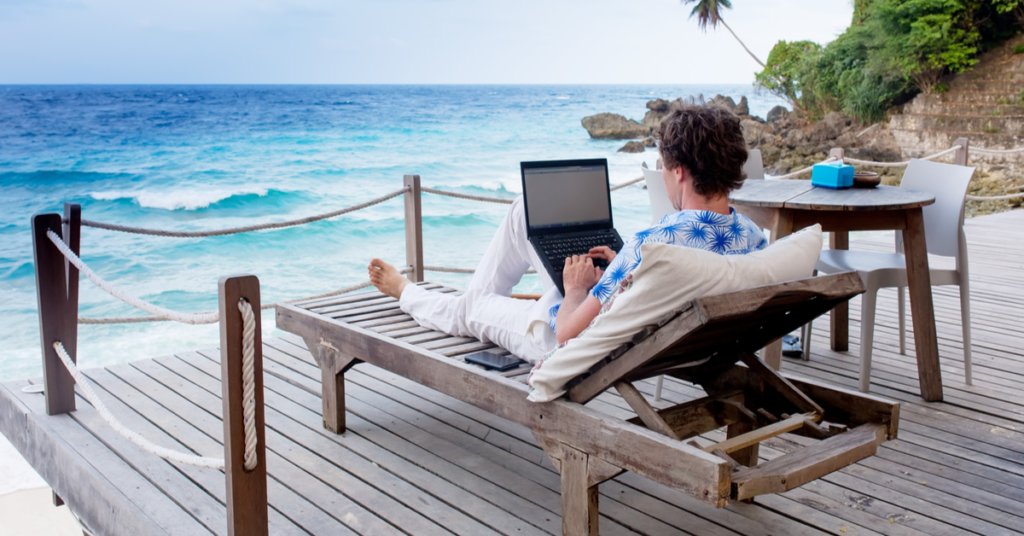A new tourism economy could emerge that focuses on travelling less and staying longer, whilst avoiding overcrowded locations. It’s time for the industry to launch new packages and ideas.
In September 2020, COVID-19 cases increased by 75% in the UK. As predicted by scientists – a second wave is occurring and new restrictions are in place. Europe is experiencing the same. A third wave is likely to come in spring 2021. A global vaccination will take time, due to the challenges of testing. Now the question is – how can the tourism sector be saved?
New tourism packages are needed to meet target audiences needs in a new era of flexibility. One idea for targeting millennial, gen Z and 50+ professionals that is starting to be discussed is ‘workcations’ or ‘hybrid holidays’. The new normal of travel might be two weeks working and two weeks relaxing in a new location.
Working 9 to 5, five days a week, from a normal office has disappeared and won’t return for some time (potentially six months in the UK). The gig economy has already started to change the way people work, COVID-19 has simply sped this up. Last month the Economist magazine pointed out that while 80% of French workers have returned to the office, just 40% of British ones have. As of the 23rd September the British government once again encouraged people to work from home. COVID-19 has made us all realise working from home is okay – so why can’t healthy COVID-free workers do this in an alternative location as well?
Technology allows organisations to monitor what employees do, run online meetings with ease and provide the relevant online tools to maintain efficiency. When COVID-19 struck our organisation, AM+A Marketing and Media Relations, continued to operate with ease without the need to be in one place. I relocated to Scotland and set up my office on the fringes of the Highlands in a Monzie Estate holiday cottage. Productivity remained high, and work was uninterrupted for three months, away from locked-down London.
Now is the time. New Products for a new age
In London, packed tube trains have never been pleasant. Particularly when arriving and departing in the dark of a dull autumnal morning – creating a feeling that life is all about work. So why can’t tourism act as a place where people can enjoy their working environment more?
As workers start to question what works best for them, the tourism sector should question how it can reinvent itself, and how future cities, destinations, hotels, and tourism packages may look. Fast paced, quick getaways – trying to avoid quarantine locations – seems to be a challenge and can be unprofitable when a firm has to suddenly reimburse the customer who can no longer go due to restrictions. The required isolation period for arrivals in a country may now have to be part of the new tourism package.
Stay longer, make your holiday home into an office & keep your distance packages
As organisations now look at what the new norm is, commercial packages should be developed with the rules in mind. Tourism products must consider what is the new norm, and what is doable for the customers.
Scandic hotels recently announced they would turn their 270 hotels partly into corporate or home offices that include office seating, Wi-Fi, refreshments, access to quiet areas and a variety of business services. Vienna House’s new R.evo brand has opened up apartment hotels which include working areas. Open office provider Second Home has developed ‘workation packages’ in Lisbon that include surfing, yoga and an office pass. Estonia and Barbados are providing visa packages for individuals looking to operate from their countries for up to twelve months.
Product development managers need to consider what is now possible. New products need to factor in items that can match someone’s average holiday spending, but for longer durations. Other considerations include thinking about COVID testing facilities and the ease of being somewhere should there be a sudden lockdown. Strategic partnerships with organisations such as health insurance and activity providers can act as incentives, along with available technology and office set-ups.
Holidays and working away for a month at a time?
In Europe travel restrictions and rules are changing frequently, non-essential travel is not recommended and some locations have been locked down. However, hospitality remains open (for now). Now is the time for product development managers to start preparing for the new norm. Lifestyles and how people operate has changed, tourism organisations should also aim to adapt to change, by integrating flexible living with our working lives.
Travel and tourism has provided generations with a sense of freedom – to see, explore and experience. So now is the time for the tourism sector to unshackle the enslaved office worker, and fulfill their desire of working from a beach hut overlooking the Mediterranean or a desk looking onto a magnificent Alpine backdrop.
You may also be interested in…
- Will 2020 define the future of tourism?
- What can we do to revive the travel industry?
- Why improving the customer journey and user experience is the new priority for travel organisations
The author of this post is Frank Marr, Managing Director and Co-Founder of AM+A Marketing & Media Relations
